Diane Morgan: funny girl
Comedian Diane Morgan has made a lasting impression on British TV. From her characters Philomena Cunk to Mandy, she’s one of the leading ladies bringing laughter to the small screen. In this interview, she discusses Charlie Brooker, her miserable stand-up, and why there are far too many police dramas
By Hannah Ewens
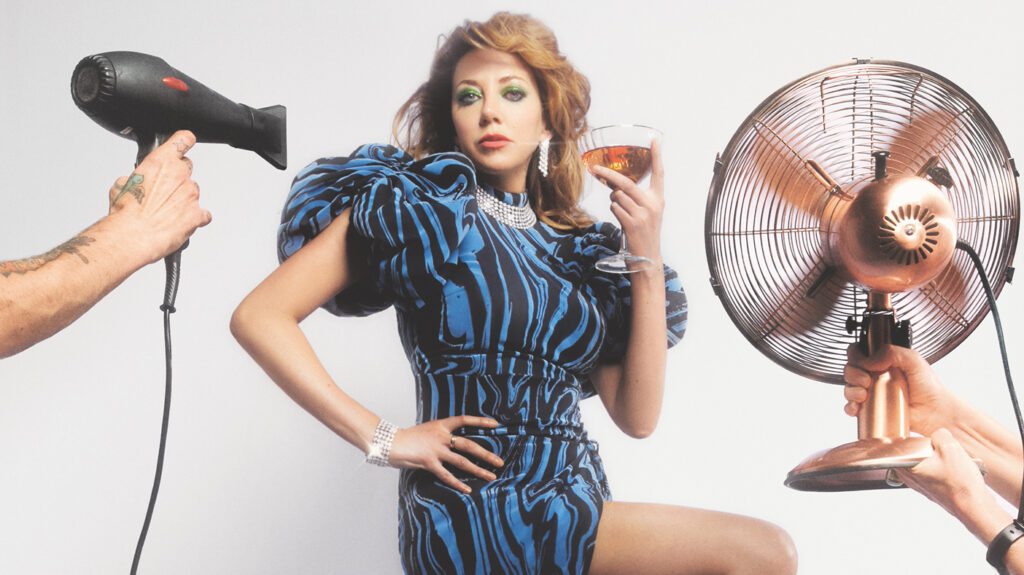
The comedian’s eyes are wide, mouth contorted, as she answers a telephone that never rang. ‘I Will Survive’ by Diana Ross fills the room. “Who is it?” Diane Morgan says into the unplugged retro device. The people around her — a stylist, photographer, editor, makeup artist — crack jokes about who is on the other end. Morgan laughs raucously, as though everyone is as funny as she is (they’re not).
Morgan, 46, grew up in Bolton with a physiotherapist father and a mum who raised her and her older brother. The family loved watching comedy together, which nurtured her interest in it. “I remember one exercise at primary school was to write down everything we watched in a week and everything I watched was comedy,” she remembers. “There was no Newsround or Blue Peter. It was all sitcom after sitcom, a sketch show, a comedy film.”
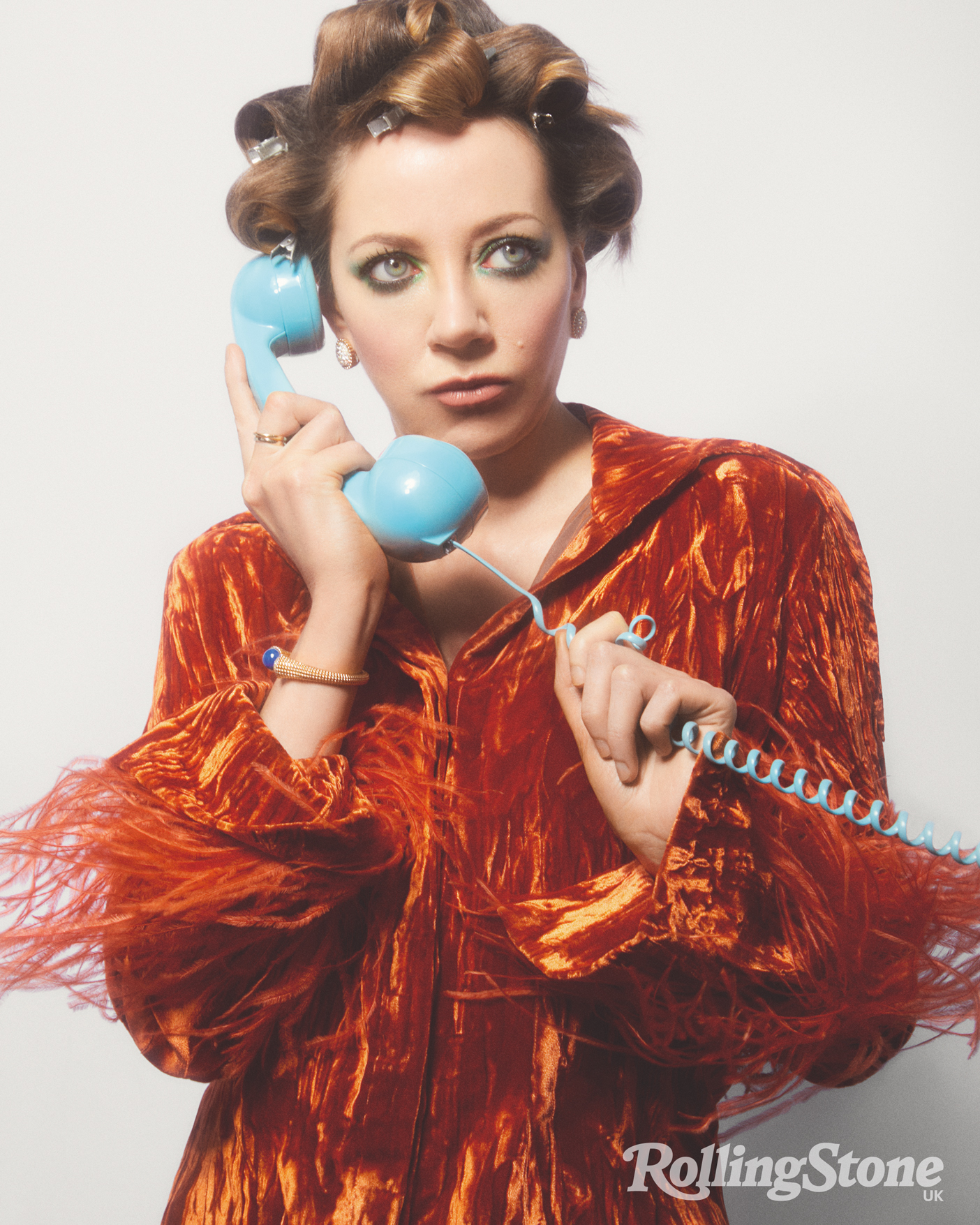
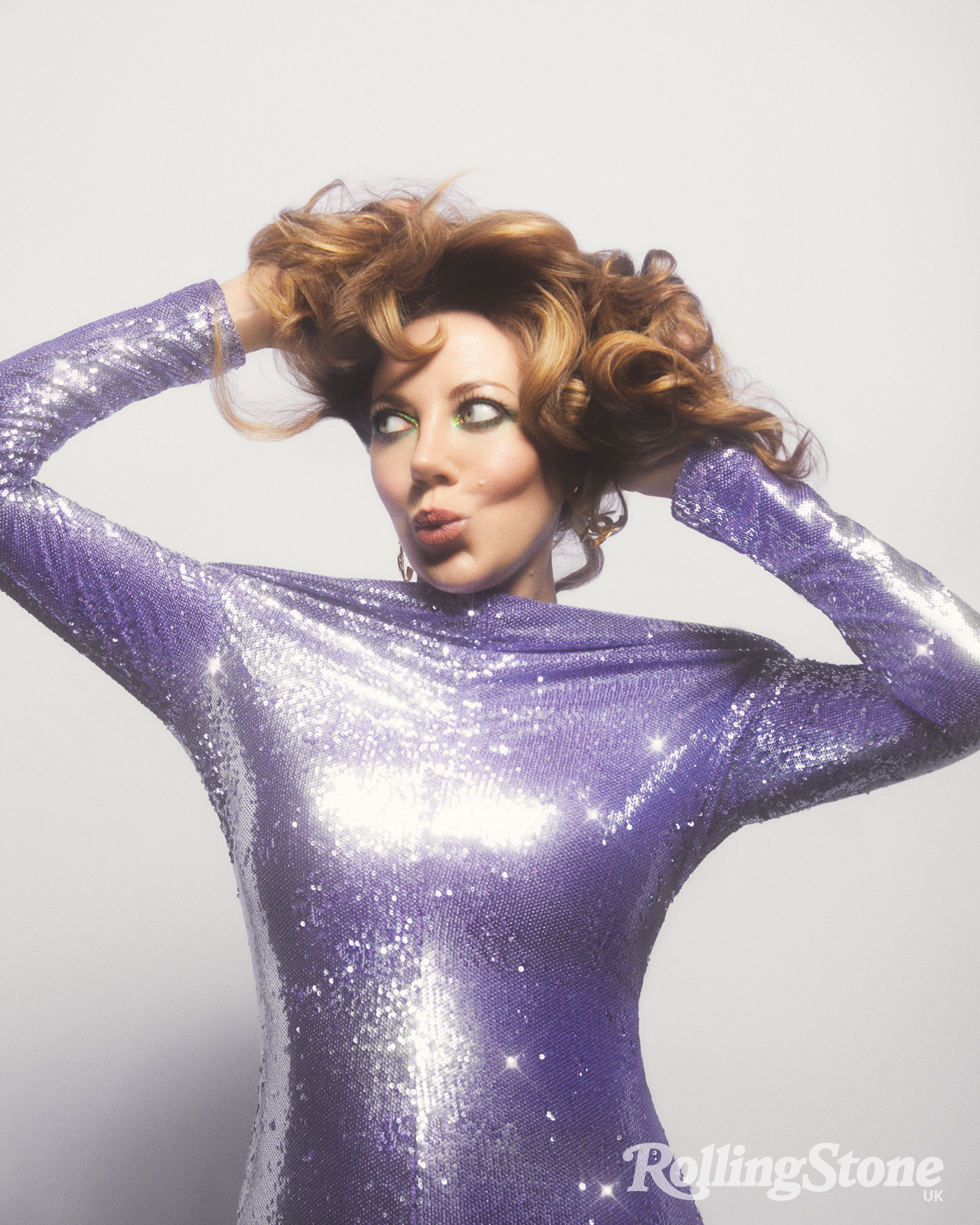
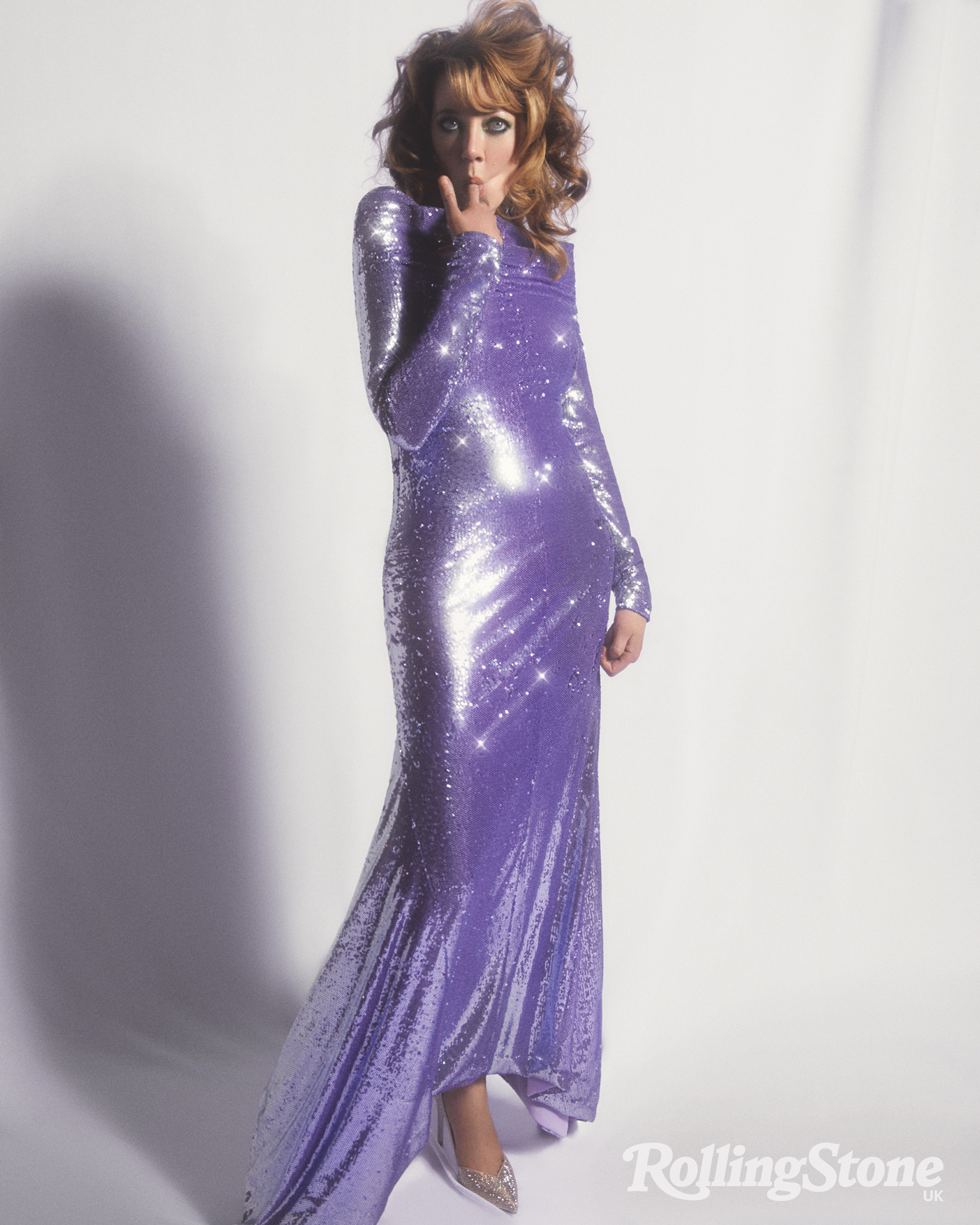
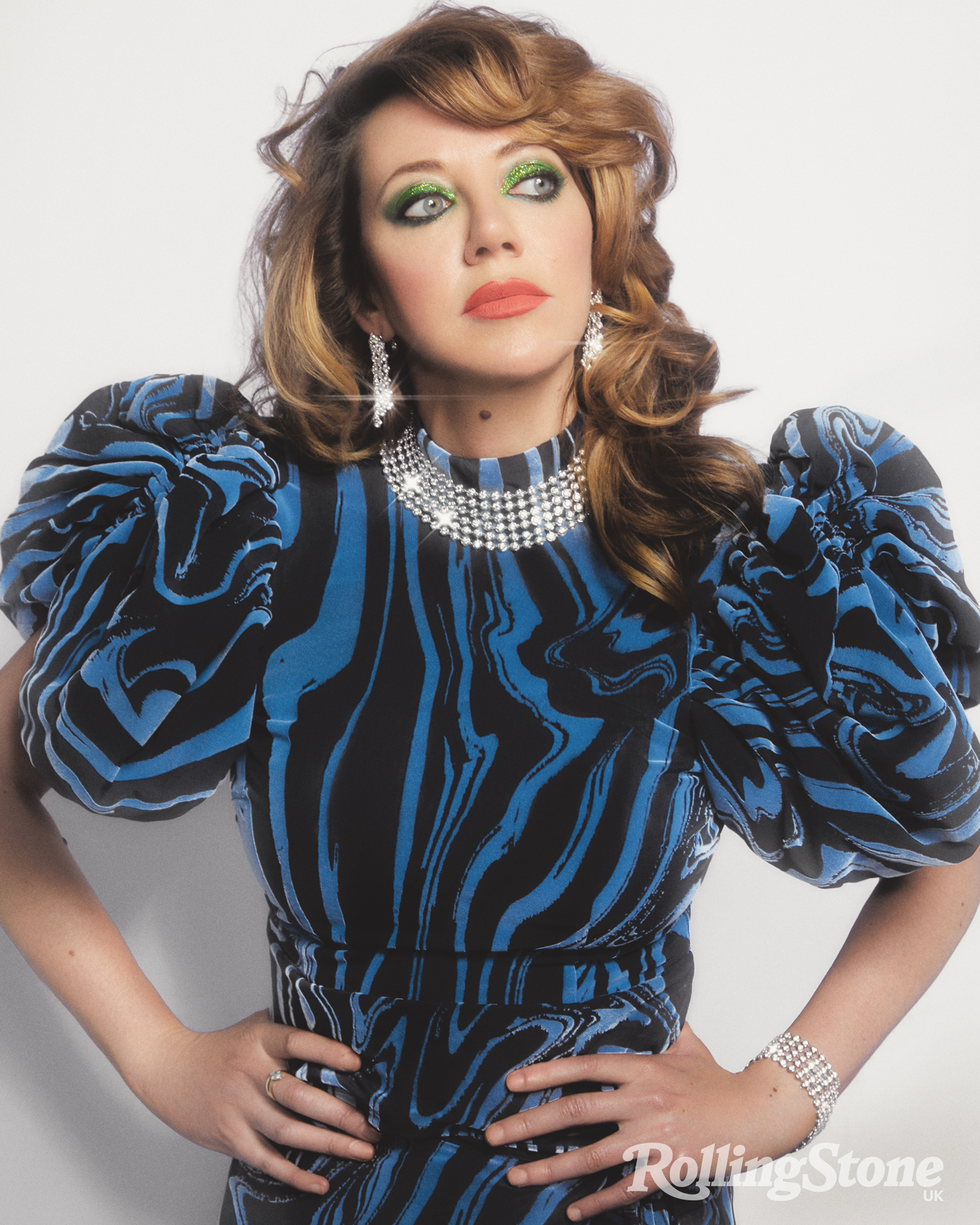
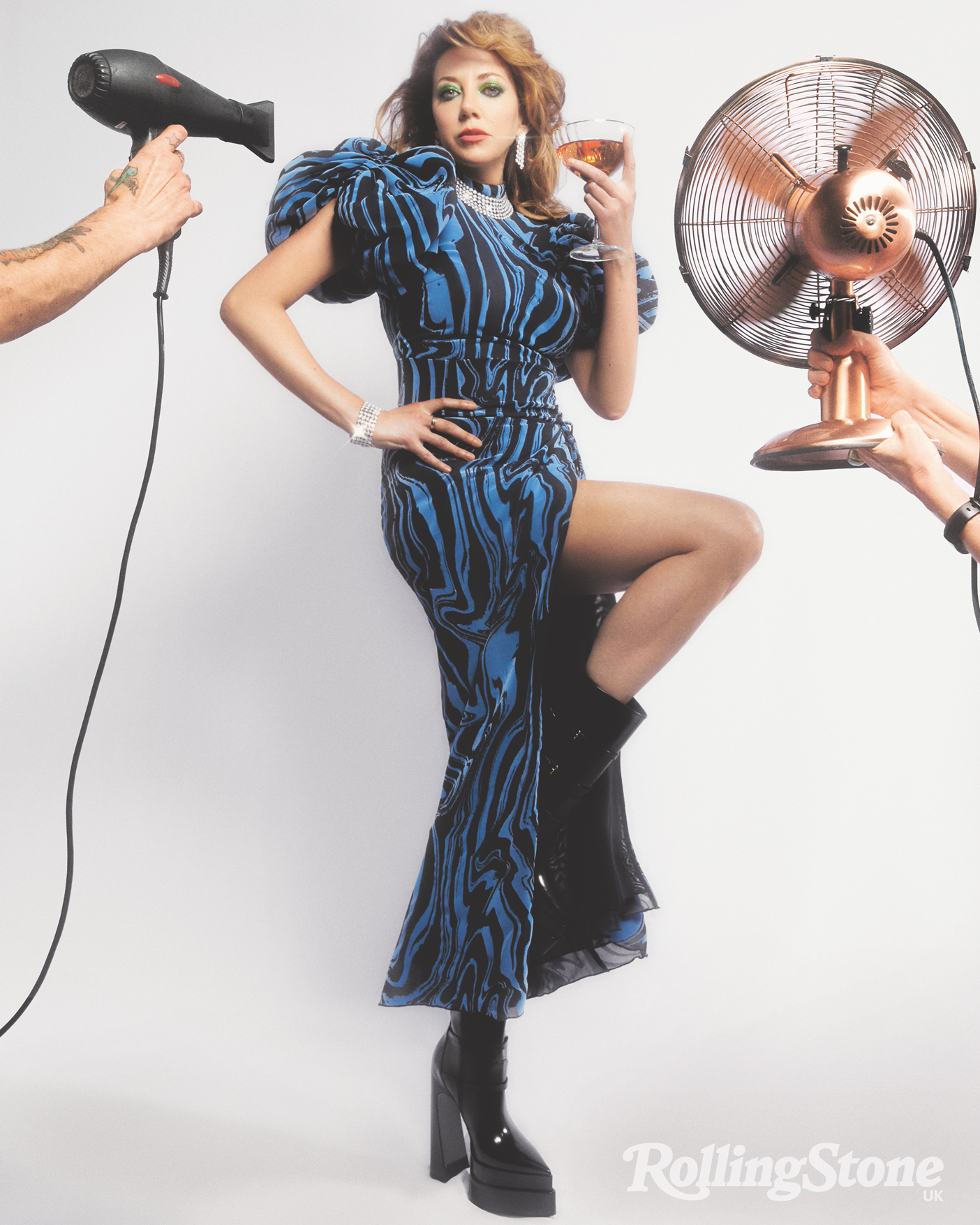
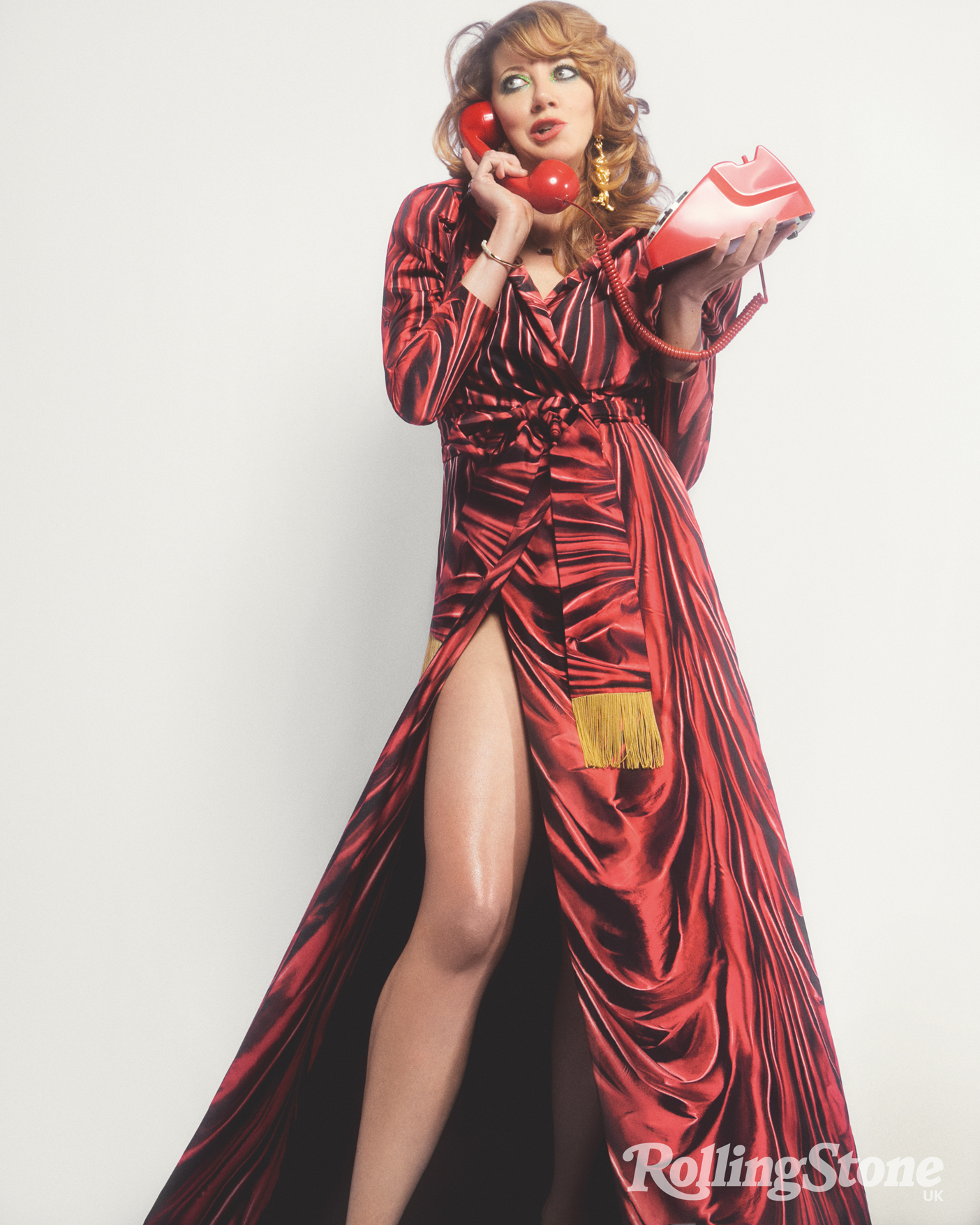
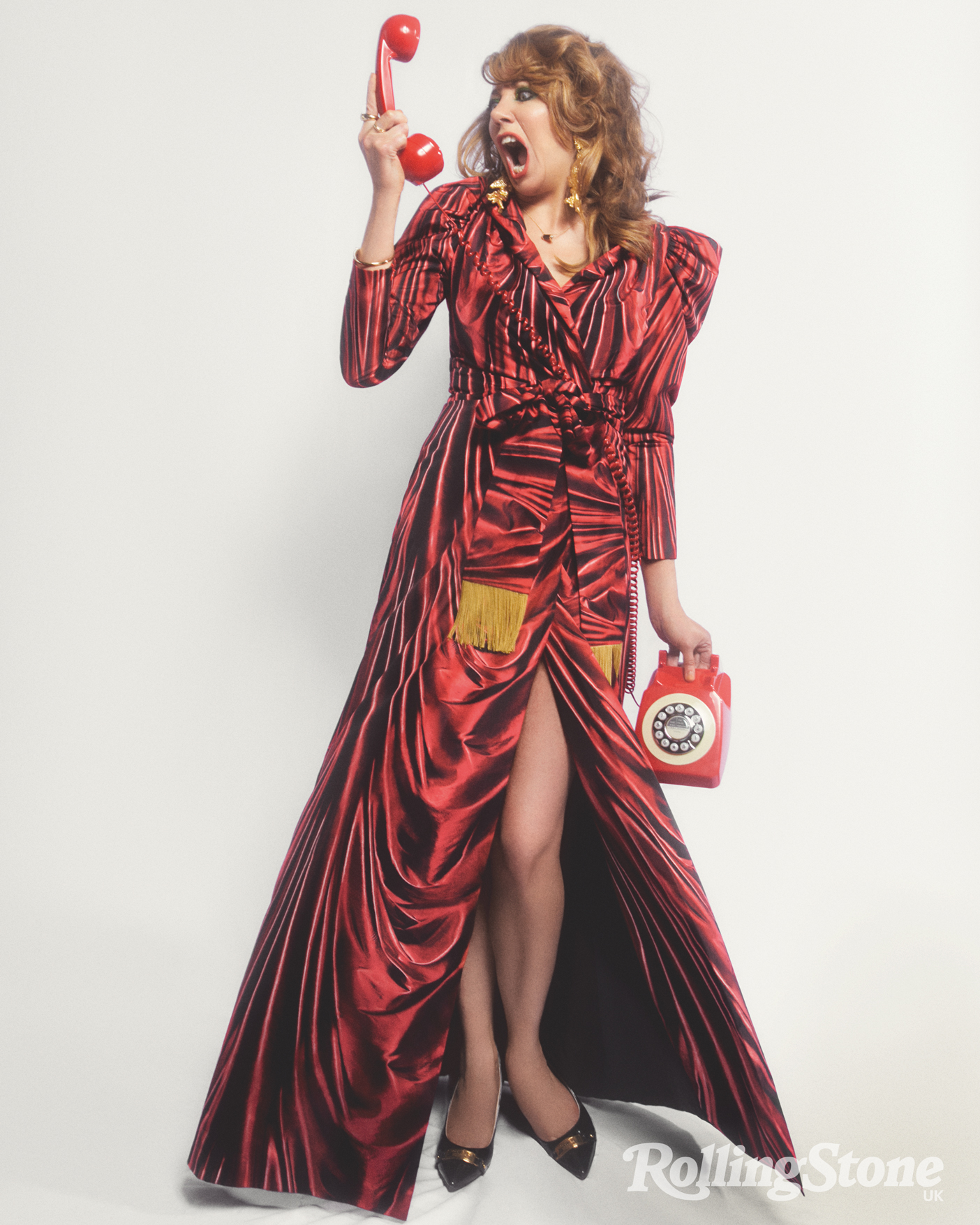
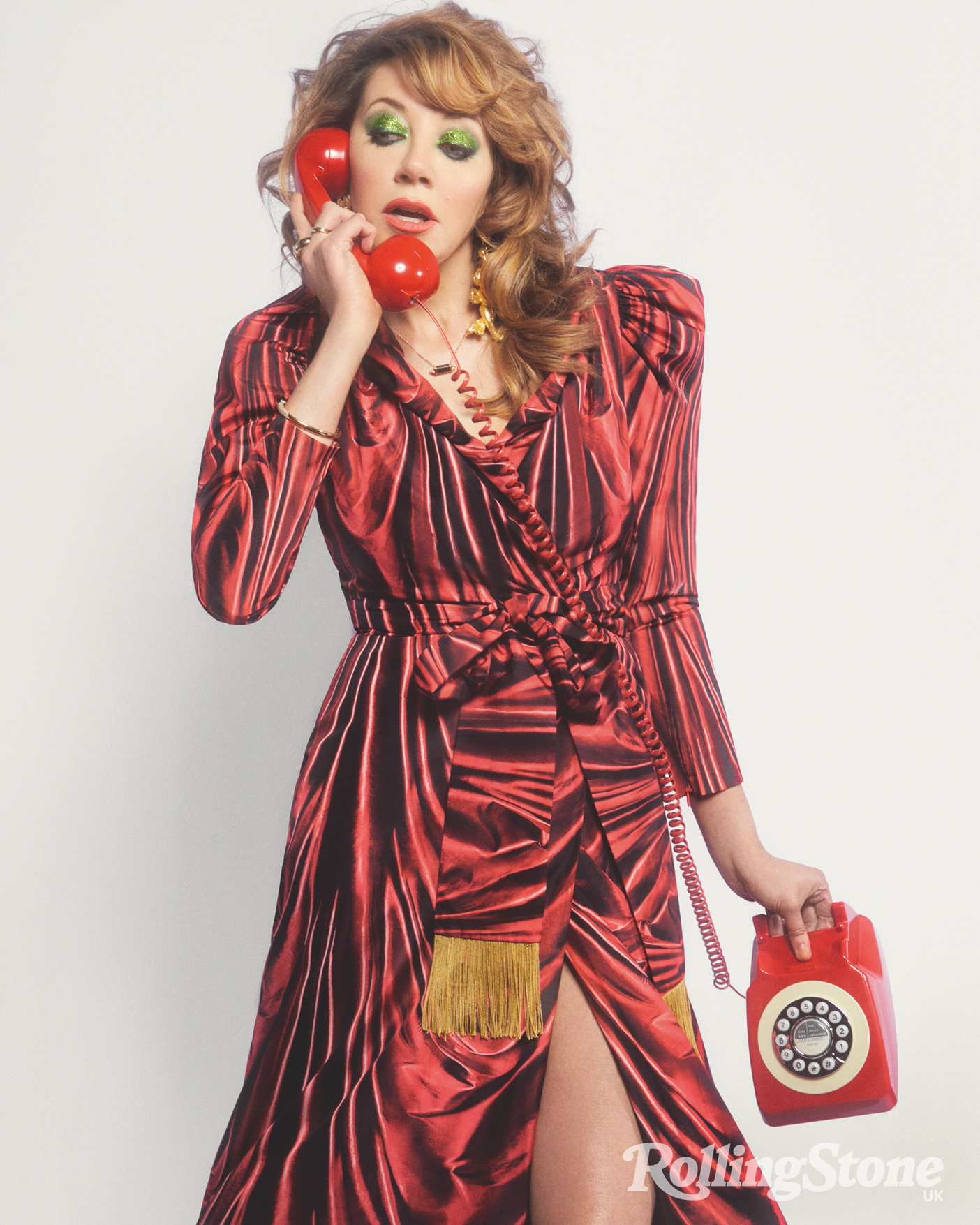
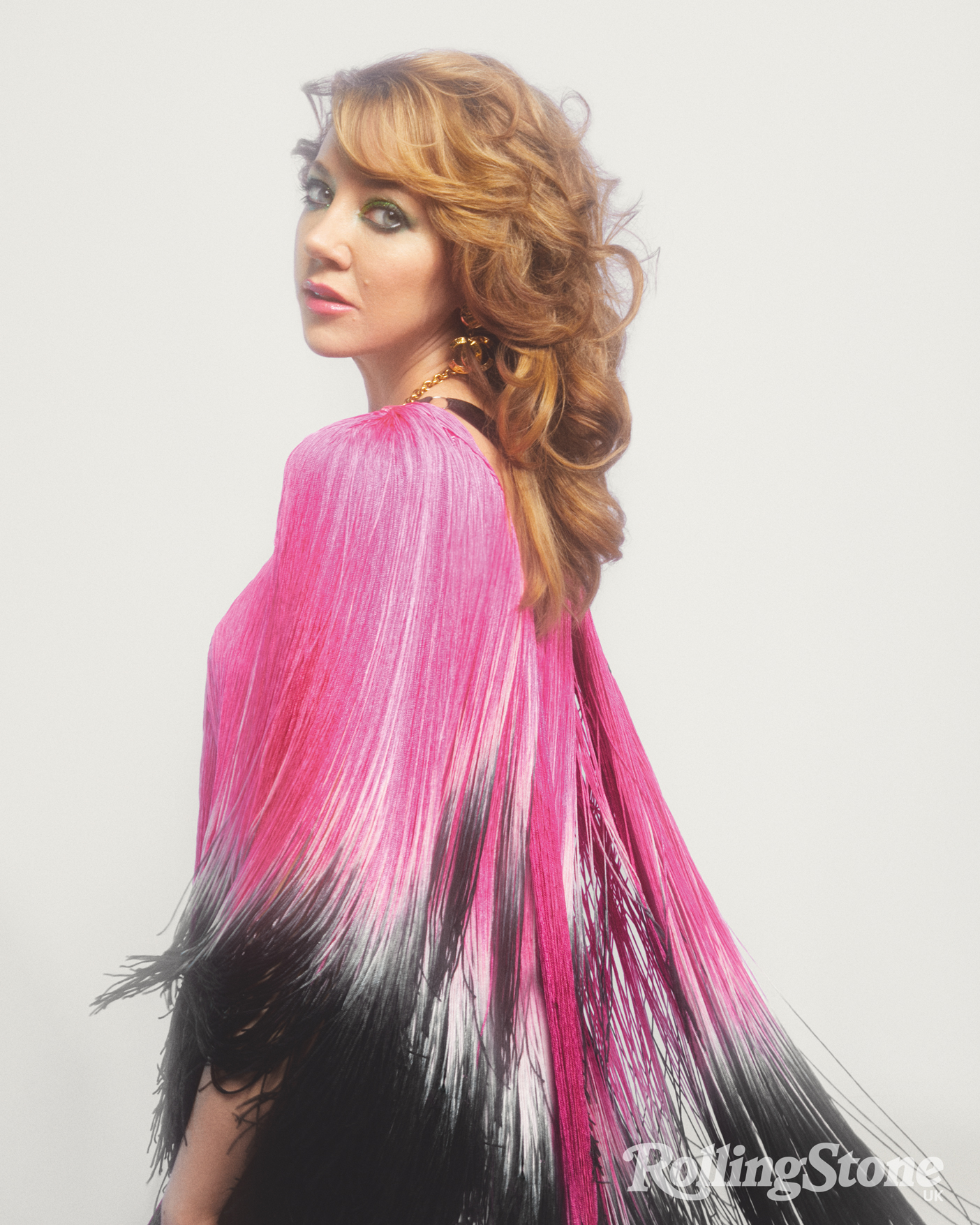
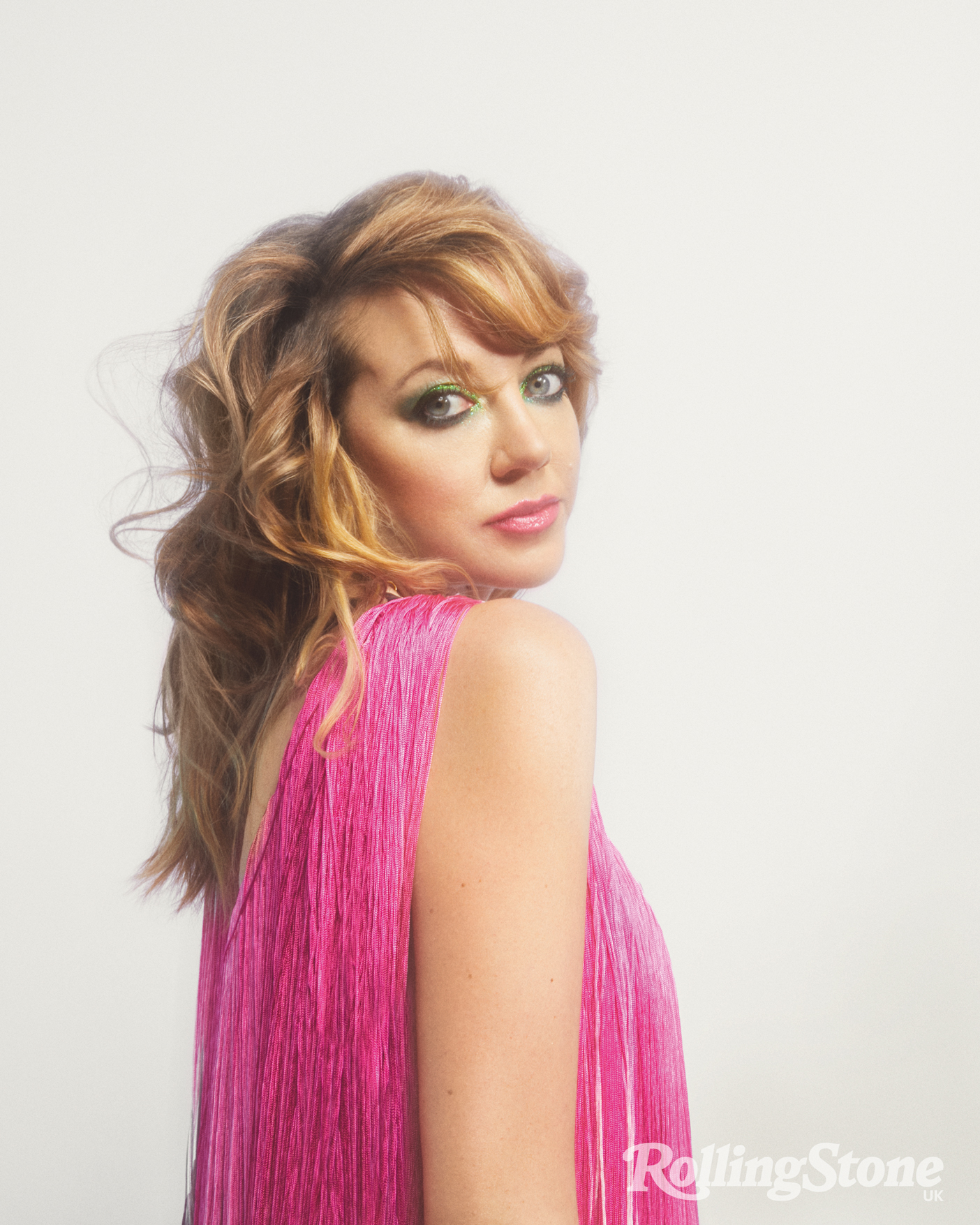
You’ll recognise Morgan’s face from TV, even if you don’t know her name. She wrote, directed and starred in Mandy, a short, snappy sitcom about an inept, curious woman who can’t hold down a job. She had a key part in Motherland, a sitcom about the trials of motherhood, and After Life, Ricky Gervais’s popular Netflix show. But for many British comedy viewers, it is her role as Philomena Cunk, Charlie Brooker’s fictional BBC presenter, that made her one to watch.
When she auditioned for the part, she asked if she could try out with an exaggerated take on her own Bolton accent, in addition to the posh one Brooker had envisioned. Brooker and his team loved this version, reflective of the strange and offbeat feel that Morgan brings to every role. Her work as Cunk expanded from a small bit part on Weekly Wipe to her own mockumentary series which sees the presenter attacking various topics — Shakespeare, Britain, Christmas — and somehow getting to the heart of the issue with blunt, silly ignorance.
It’s odd, Morgan thinks, that the BBC factual programming and documentary style tics that Cunk sends up are still used today. “I assumed that after Cunk came, everyone would then stop doing those tropes. But they don’t. You still get Cunk-like interviews, too. It’s really weird,” she says. Her favourite part of playing that role is engaging stuffy academic experts on the topic of the episode. There are plenty of these humorous sketches throughout the upcoming Cunk on Earth, a series about humanity that tackles who we are, how we got here and, far more crucially, what was the point?
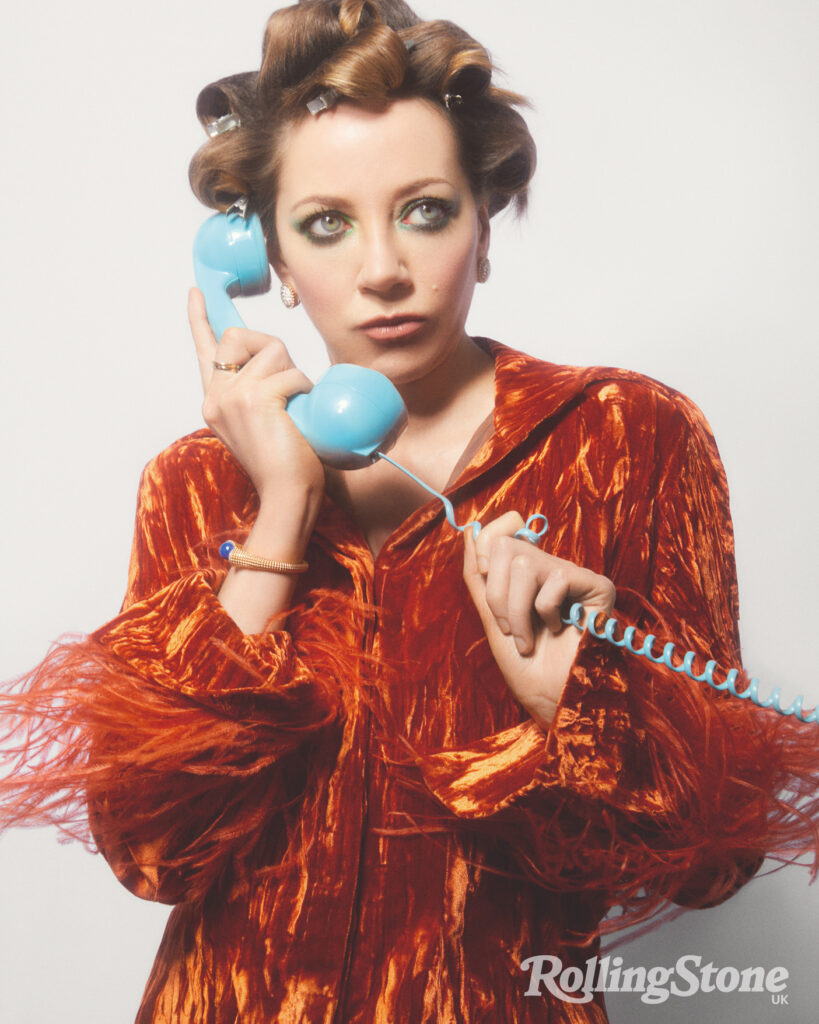
The experts who made it onto Earth presumably didn’t know who you were and that they were being stitched up?
Diane Morgan: When we first started doing [Cunk], obviously nobody knew. They’d sign a release form and not know what the show was. Then they tend to get quite angry because you’re trampling all over their favourite topic. And then there was a point where some people started to know because their sons or daughters would go, “Oh, Cunk, you’ve got to do it.” I think a lot of experts just don’t watch television. They just don’t. They read books. So, they literally don’t know what they’re in for. And they certainly don’t know what questions they’re gonna get. You lull them into a false sense of security for ages because those interviews, each one is well over an hour long and cut down to three minutes. You can really choose the choice bits.
How do you prep for those interviews then? Are they semi-scripted?
Diane Morgan: I’ve got a list of questions, but you just don’t know where the conversation is gonna go. You have to improvise it, because they might start talking about something else. It’s so freeing. If you were given free rein to be as thick as you liked and as rude as you’d liked and as bored as you liked… It’s just like, “None of it’s my fault, I’ve been paid to do this.” What are they gonna do? Storm off? That would just make great TV.
“I was always obsessed with comedy. You have to be. If you’re not, don’t bother going into it”
— Diane Morgan
What’s the angriest someone’s been?
Diane Morgan: There was a guy early on. Was it [Cunk on] Churchill? He really looked angry. Then production stopped the interview and said, “Oh, do you mind not being so aggressive with Philomena?” He really looked like he was gonna grab my throat. I was sort of thinking, ‘I hope he does because that’ll make great TV if someone throttles Philomena.’ You get weirdly sort of fearless when you do it because you can’t do anything wrong. You can yawn in people’s faces; you can flick them the Vs mid-interview.
Or you can ask them about anal bleaching, as you do in the new series.
Diane Morgan: And he hadn’t heard of anal bleaching, didn’t know it’s a thing.
He clearly hadn’t watched the film Bridesmaids.
Diane Morgan: Yeah! But that’s experts for you. They don’t watch TV and they don’t have their own anus bleached.
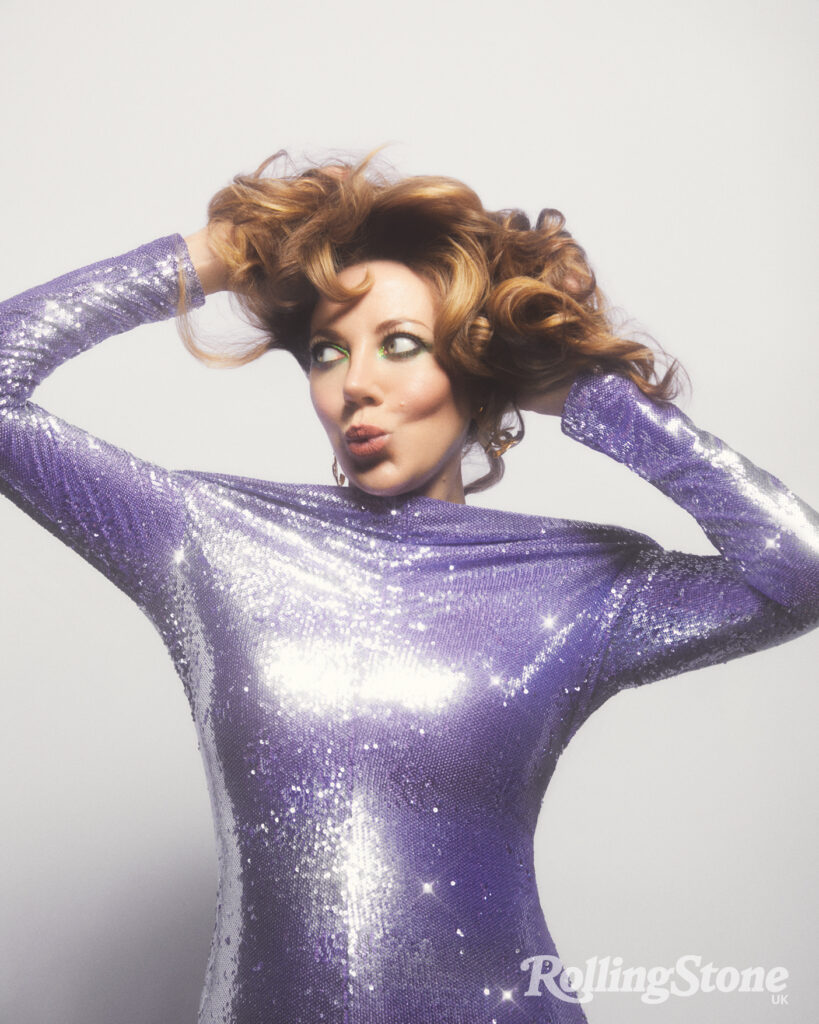
When you were younger you used to watch comedy with your family. What were your favourite shows?
Diane Morgan: I watched all comedy. Stuff that my dad would introduce me to: Hancock’s Half Hour, Peter Cook and Dudley Moore [Not Only… But Also]. I think it was just all going in and I was absorbing it. It was prized in our house to be as funny as possible. You could fail all your exams as long as you were funny. I think they wanted us to be happy, basically. And it’s a good job because I’m just not academic.
I was always obsessed with comedy. You have to be. If you’re not, don’t bother going into it. I did drama school then stand-up for nearly 10 years. And the first couple of years of stand-up, I was still doing jobs alongside and not being paid for stand-up. You’ve got to be in it for the long haul.
What was the feel of your stand-up? I couldn’t see any clips online.
Diane Morgan: My vibe was not wearing makeup, make my hair look shit and just tell everyone how awful my life was in a very deadpan way. It was all about the terrible jobs and how awful it is getting older. And death. I very quickly started to earn money. I couldn’t believe that. After years of doing everything: telesales and dental nursing and packing worming tablets.
You were 30 when you started stand-up. What else were you doing in your 20s?
Diane Morgan: I was desperate to get into drama school and tried three times to get in. On the third year, I finally got in. Maxine Peake, who’s a friend of mine, she was doing the auditions with me as well. It’s really weird looking back at those times now, thinking, ‘Why wasn’t anyone taking her?’ After drama school, I just couldn’t get arrested. I was doing shitty jobs. I was in some telesales job. I’d have to ring up and ask people if they were happy with their accountant and people would often be rude to me. “I got out of the bath to answer this call.” And the office would laugh. My boss was like, “Seriously, you should do stand-up.” Thirty was looming and I thought, ‘I’ve really got to pull my finger out, I can’t be doing this at 55.’ During your 20s you don’t realise that time’s skipping on. I did one of those stand-up courses and that’s when everything started to change.
But with stand-up, towards the end, I didn’t care if I did well, or if I didn’t do well. I didn’t feel anything any more. Luckily, I just started to get into TV with auditions for Cunk and other bits.
Why did you fall out of love with stand-up?
Diane Morgan: I got completely numb to it, and I never wanted to do, like, an hour of stand-up in Edinburgh. That’s the natural progression as a stand-up: you build up a 20-minute set and then you do an hour in Edinburgh. I can’t think of anything worse than doing an hour of stand-up, especially if you’re dying. The thought of being five minutes in, the audience not being with you. They’re looking at their phones and chatting.
Are you glad you got to do those tedious jobs like telesales?
Diane Morgan: Yeah. Because then you know what people have to put up with and why comedy is so important to them. When I was growing up and I got depressed or upset, I’d always turn to comedy as a comforting thing. It’s nice now to think that your comedy might make them feel a tiny bit better. That sounds so wanky, but it’s true. I know how it made me feel like I’m not alone in this terrible world.
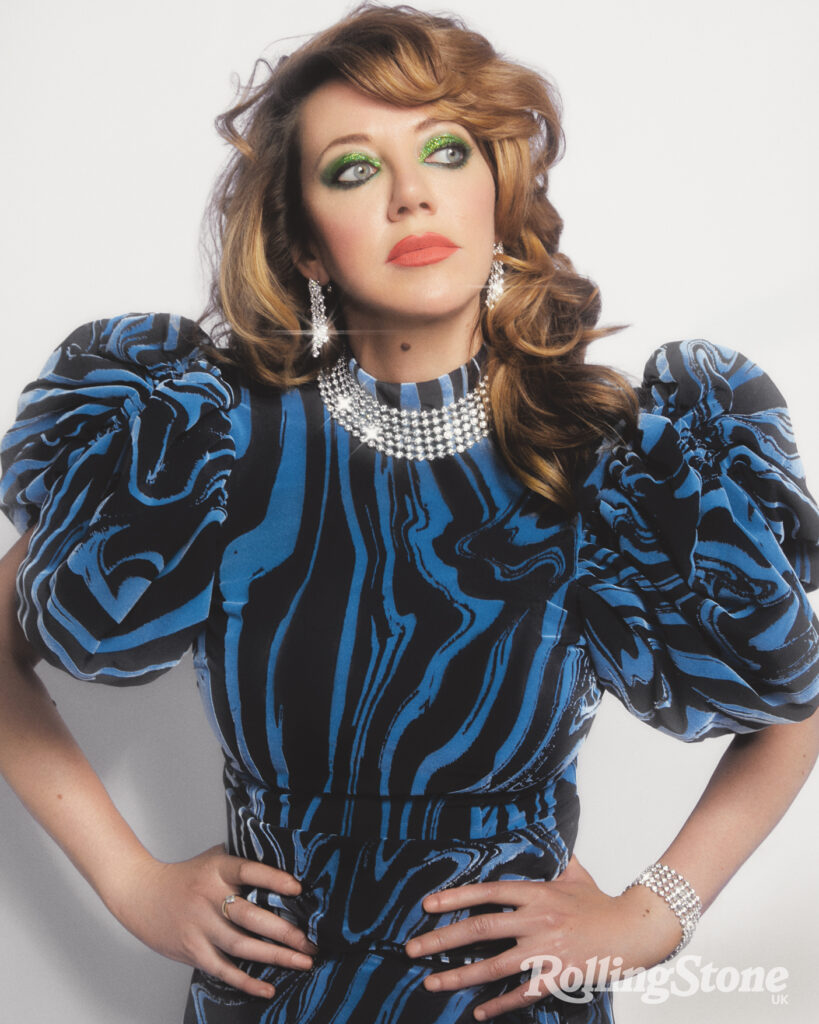
When you’re happy you can be amused and amusing in a self-sustaining way. If I’m miserable, I gravitate towards very depressing comedy.
Diane Morgan: Yes — if someone’s having a great life, what’s funny about that? Nothing. You’re young and good-looking and everything’s well for you. That’s why I never liked Friends. I just thought, ‘What am I laughing at here? Everything’s fine for them. There’s no jeopardy. You’re having a lovely time, look at you, you’re all models living in a house together.’ Oh! [groans]
While you were doing stand-up, did anyone notice you that ended up having an impact on your career?
Diane Morgan: Charlie Brooker. There are certain people that make a really big difference in your career, looking back. You think, ‘Oh, if that person hadn’t seen me….’ I don’t think I’d be where I am today if it wasn’t for him.
Did you realise at the time that him casting you as Cunk was going to be a pivotal moment?
Diane Morgan: No, because I knew that people, especially men, get really obsessed with Charlie Brooker. With his show, even if they change a tiny bit of it, the men get really angry. “Are you changing it? Where’s Charlie? We want more Charlie.” And so, when I did it, I was warned that on Twitter and stuff, there might be a backlash. They might not like you because you’re not Charlie. So be prepared.
“Now that I’ve done Inside No. 9, I feel I can just kill myself. There’s nothing else like it”
— Diane Morgan
As in, they might say, “Well he’s writing it, why can’t he just be performing it?”
Diane Morgan: Yes: “I just want Charlie!” So I was aware of that. But then people were lovely. I felt relieved that I got away with it because I was only doing a tiny little three-minute section at first and it grew.
Motherland was the next big stepping stone.
Diane Morgan: I did a self-tape when I was on holiday. And I thought, ‘This will go nowhere.’ I couldn’t upload it, and I thought, ‘I might just go to the beach, sack this off.’ But I persevered and sent the tape. Apparently, they’d been looking for someone to play Liz for a while and found it a difficult part to cast. Mothers love that show. I’m accosted in the street on a daily basis by mums who are like, “Oh my God, thank God for Motherland, we really needed it. I recognised all the characters.”
Women, whether they have kids or not, have this voracious appetite for art and culture that shows the reality of motherhood.
Diane Morgan: Because there’s not much like that, I don’t think. Before [Motherland] on TV it was, “Awww, aren’t kids cute?” This was like, “Kids have ruined our lives.” People being really fucked off with kids and their lives and how awful it is. There isn’t another show that deals with that. And I think, again, it’s a comfort thing. It’s like, ‘Oh, thank God, someone else is going through what I’m going through.’
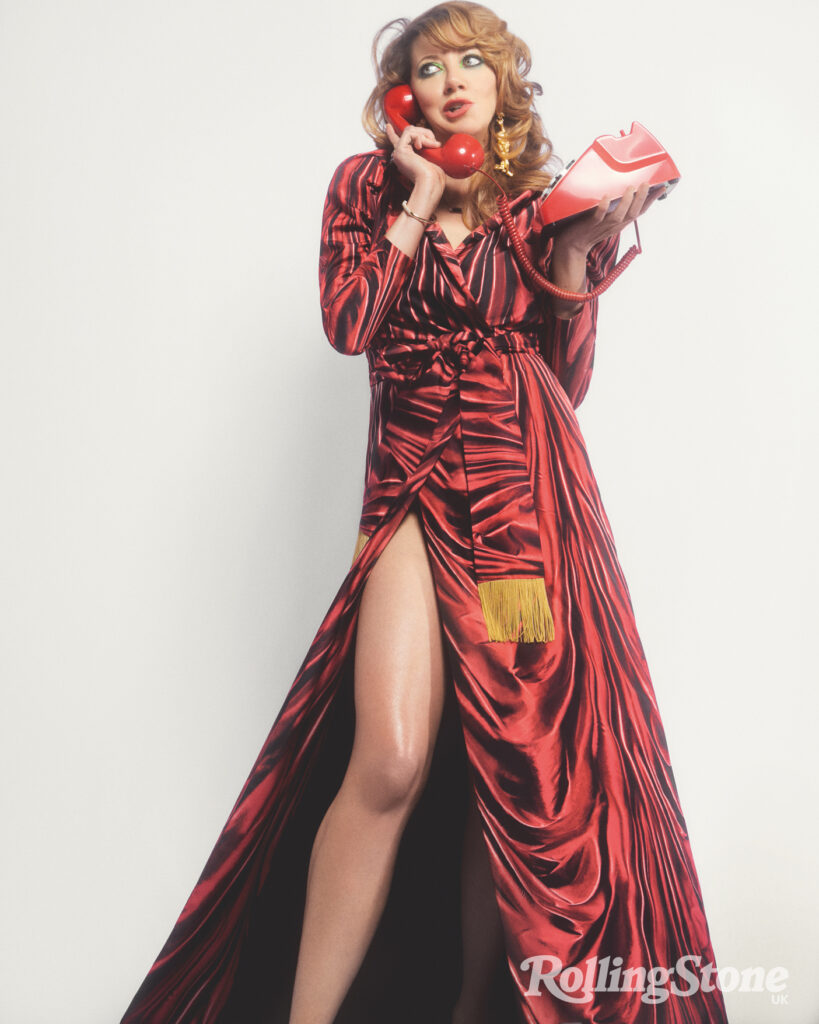
Around the time of promoting Motherland, you said that you don’t want kids because you don’t see any benefits. That’s hilarious. Did you get backlash from that?
Diane Morgan: I didn’t because some women don’t want kids. It shouldn’t be a big deal especially in this age. I’ve never wanted them. Never for a split second. But if you do — great, good for you. I think some people are wary of bringing up the kids thing if they know you’ve not got kids because they think, ‘Oh, maybe you want them and you can’t have them.’ Like, ‘What if I mention kids and you suddenly burst out crying or something?’ When people have kids, they suddenly disappear off, don’t they? Me and my partner Ben [Caudell, BBC comedy producer] have got friends now who also don’t have kids. And we all hang out together. Enjoying our lives!
Was there a point where your friends disappeared to reproduce?
Diane Morgan: Dispersed. It happened gradually from early 30s. People start dropping off. You think, ‘Where did Sam and John go? Oh, they’ve got kids. They don’t go out any more.’ Or, you know, they’re just haggard, basically, they’re tired. And they’ll emerge again 10 years later. Get a rescue dog. We don’t need more kids in the world. There’s enough.
How did you come up with Mandy’s character?
Diane Morgan: She’s based on a lot of women that I saw growing up in Manchester, like an amalgam of women. The mouth was a woman I know, it made her look a bit mad. I added the walk just trying to make the crew laugh. Basically, I walked into shot like that one day and then of course, you’re locked in and that’s the character’s walk for the rest of the series. It was really hurting my back.
Do you enjoy writing on your own more than writing with other people?
Diane Morgan: No, I think I’d rather write with other people. It’s nice to a certain extent. You get to a point where you’re like, “I can’t think of an ending here. Can you think of an ending?” Mandy was only 15 minutes, though. It’s not like I’m trying to write a novel or anything, that’d be really difficult. Or Succession.
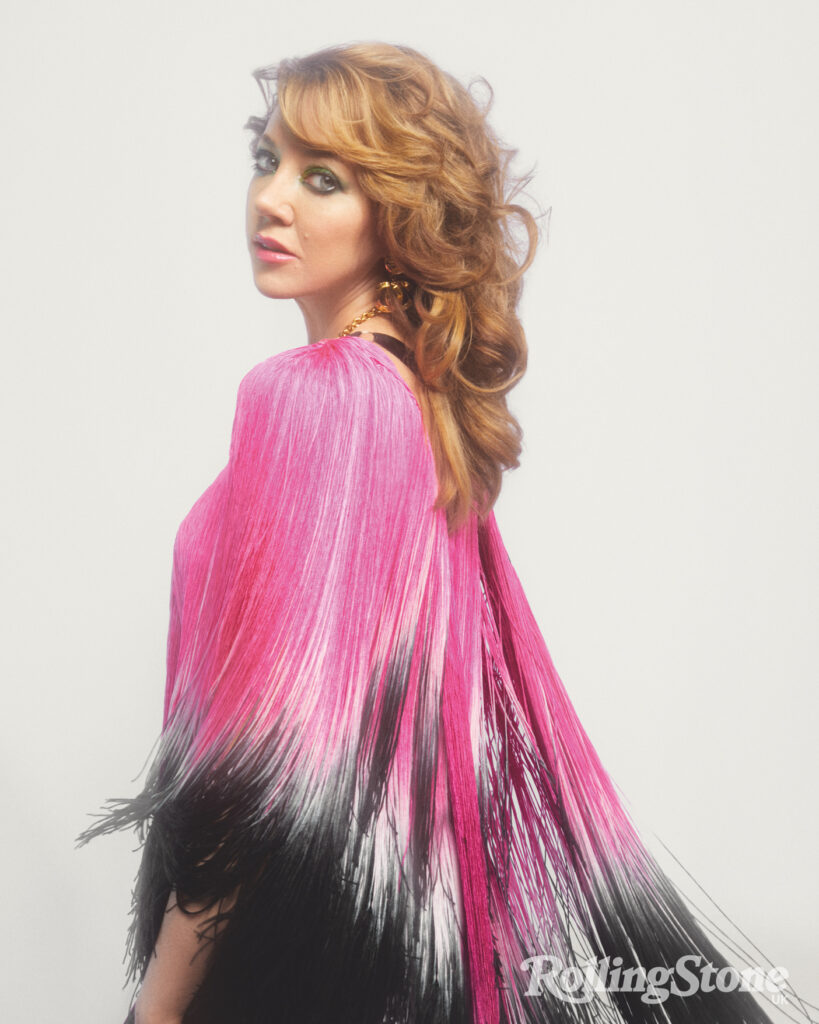
Who were you showing Mandy to in its earliest form?
Diane Morgan: It was like, 10 years before that. I’d been doing it with [comedian] Michael Spicer. I kept laughing at things that he wrote on Twitter and we got into a conversation and then met up to do some improv because he likes doing character stuff as well. We’ve got this old tape of us, me dressed as Mandy and him trying out some character. It’s really sweet.
Did Mandy end up exactly as you wanted it? My favourite thing about it is its weird mood. It’s unsettling and strange.
Diane Morgan: Yes. I wanted it to be a bit unsettling. A bit like The Young Ones. It’s a mad world of its own. I didn’t want to do just a traditional sitcom. And with 15 minutes, it’s sort of difficult to do a traditional sitcom anyway. It’s more like a cartoon, but a weird, unsettling cartoon — like a nightmare, really.
Where do you see your career going?
Diane Morgan: I don’t know. Now that I’ve done Inside No. 9, I feel I can just kill myself. There’s nothing else like it. What have I got to look forward to now? Nothing. Because I enjoyed working on that so much — they care about it so much, even down to what hat a character will wear. They’re so passionate about it. What could I possibly do next? I am trying to write something else that I won’t tell you about because I’m terrible at pitching ideas. I start to think, ‘Oh, God, maybe it’s a shitty idea.’ I’d rather just write it and go there. I throw it into a room and run off before I see their reaction.
It’s a pilot you’re writing, though. Is it comedy?
Diane Morgan: Yeah, I don’t think I could write out-and-out drama. It’s…
…like comedy, but more boring?
Diane Morgan: That’s a great way of putting it. That’s what I think, too.
Are you writing alone?
Diane Morgan: If [someone] says they’d like to commission a series, I’ll get someone else to write it with me. It’s just so much more fun that way because then you can spend the first hour gossiping about people you hate.
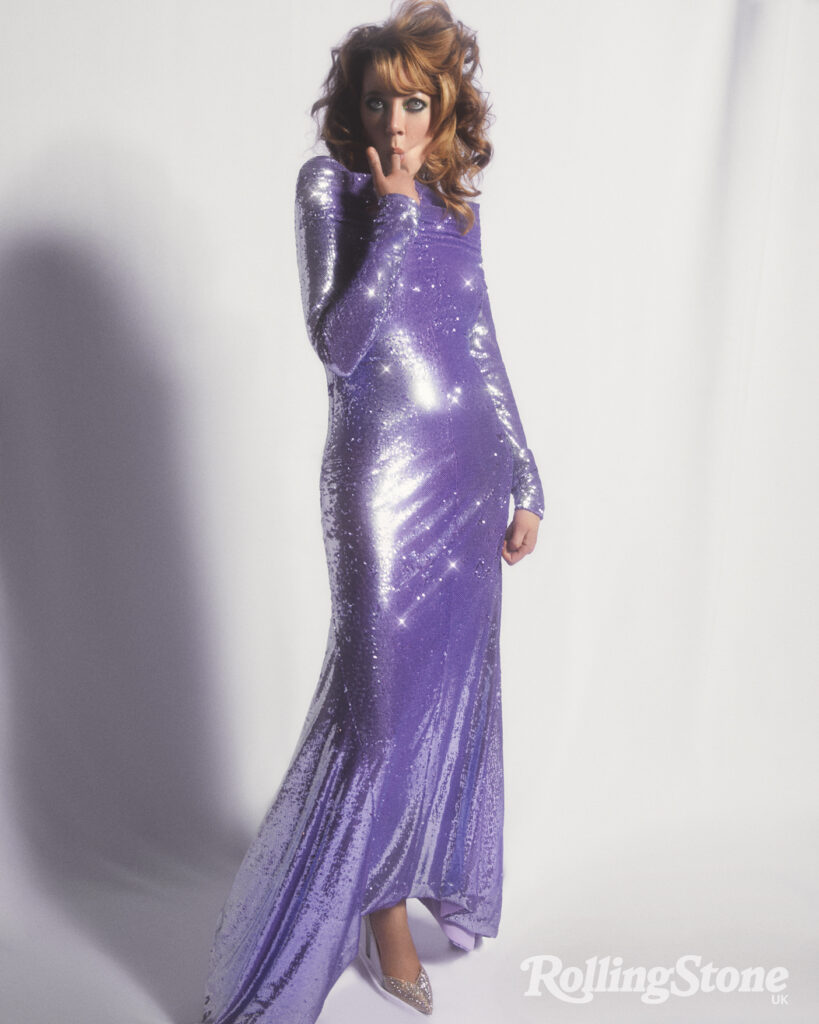
Would you ever do dramatic acting?
Diane Morgan: Absolutely. I’ve been offered stuff, but often policewomen. And I think there’s too many shows with police in. If you like police, you’re in luck. It’s just everywhere. Kiddy’s been murdered, police are there.
Kids again. Kids and police.
Diane Morgan: No, thank you. If someone can think of something that isn’t to do with police, then maybe. There’s just more and more all the time. I think people think, ‘Oh, that must be what people want if there’s loads of it. So let’s write more of that.’
That is the business model for culture more broadly now, isn’t it. One person makes something, it does well and we can only replicate that for five years.
Diane Morgan: You’ve got to retrain people into watching other things. Otherwise, they’ll just eat whatever’s in their trough. Surely people have new ideas. I love a documentary, though. Adam Curtis documentaries. Or documentaries from the 70s. That’s when they knew how to make a documentary. But there’s not much that I really enjoy on TV at the moment. I just want to see something different. You think you scroll through and everything just starts to look the same, doesn’t it? Mainly because I think the same people make all the posters, so they all look like the same show over and over and over again.
“You’ve got to retrain people into watching other things. Otherwise, they’ll just eat what’s in their trough”
— Diane Morgan
Are you good at hearing criticism about things you’ve made, even when it’s delivered with love?
Diane Morgan: I’ll hate you forever if you tell me I’m terrible. Some things you think, ‘No, this is good. I don’t need anyone to tell me that.’ But certain things, you’re not sure. Often to my partner, Ben, I’ll say “What do you think about this?” and he’ll say “I’m not sure about that. I don’t think… I don’t understand it.” And I’ll [screams] “What do you mean you don’t understand it? It’s perfectly clear! God, I hate you!” That’ll put him off reading anything of mine for a bit. And then I’ll calm down and he’ll come back. It’s just so personal, work, isn’t it, you’re laying yourself on the line.
Of all your work, what are you most proud of?
Diane Morgan: There’s always bits of every job where you wish you had done that. Or ‘I’ve got a weird hand in that shot.’ ‘Why did you decide that?’ Or you realise how you should have done it but when it’s too late. That’s annoying. I find it very difficult to watch things as they’re going out. I didn’t watch Motherland for ages, until I felt like it’d died down and people would stop watching. And then I can watch it on my own with the sound down at first and then gradually increase the volume. And I’m like, ‘Oh, God, oh my, oh my, this is making me sick.’
Do you check social media when a project goes out.
Diane Morgan: No, no, no — I’ll switch off. The weekend that Mandy came out first, I switched my phone off and told Ben I wouldn’t look at my phone for at least a week. And all the messages piled up.
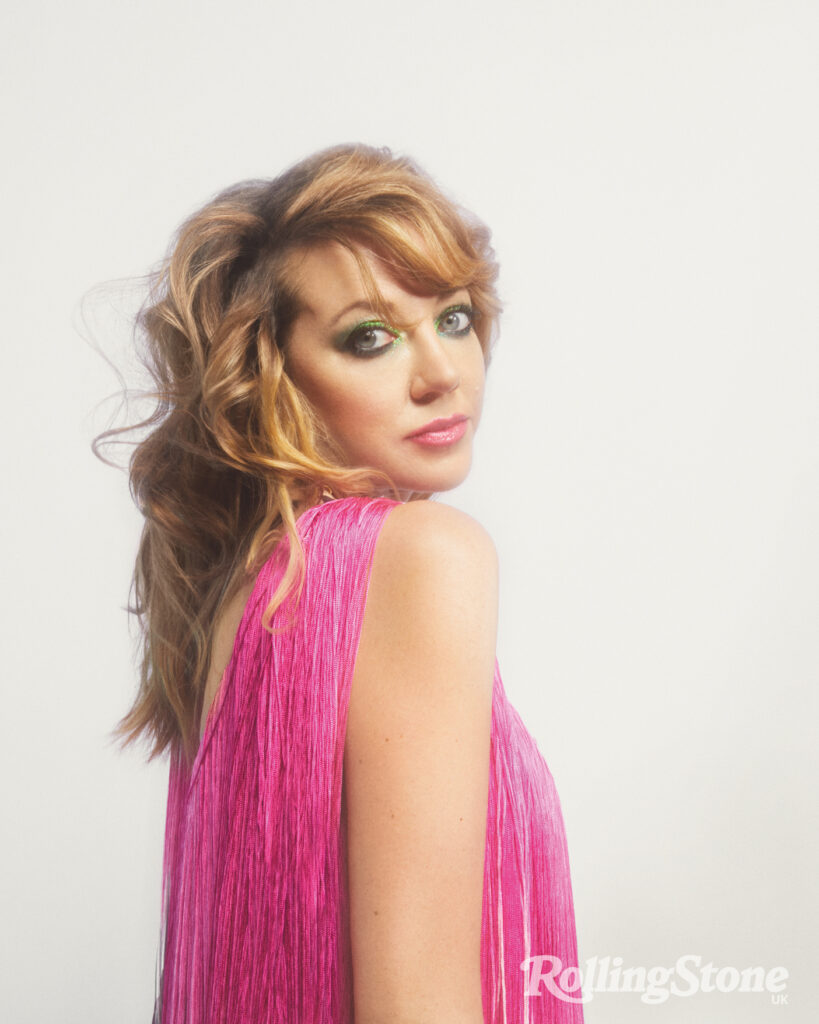
Do you read the reviews later?
Diane Morgan: No, never. That way madness lies. If it’s good, or if it’s bad, I don’t think you should read it. Because at the end of the day, it should be down to you and whether you think it’s good. You want people that you trust but you know if you’ve done a shit job. I don’t need to read a review. And it can really put you off doing another series, I think, if someone slags it off, it really takes the wind out of your sails. So, I just don’t read anything, good or bad.
Especially a project like Mandy where you wrote, directed and starred in it.
Diane Morgan: There’s no one else you can blame if it goes wrong. It’s you.
The project you’re currently writing, is it going to be at all similar to Mandy?
Diane Morgan: No, I always want to do something completely different. Especially to other things that are out. At the moment, there’s a trend for comedy dramas. That’s why I wanted to do Mandy, because it’s out-and-out ridiculousness, which people aren’t really doing. I wanted to do something totally stupid. Because there seems to be a lot of comedy dramas that are a bit like Catastrophe — they look glossy, and it’s about relationships. So I really don’t think you need to see my version of that. I think you can easily get influenced by stuff that’s on TV now and I think that’s why there’s so many of those comedy dramas — people think, ‘That’s what’s popular, I’ll do my version.’ Personally, I want to see weirder stuff and more unusual things.
So you wouldn’t make a Fleabag?
Diane Morgan: There’s nothing out there that you can compare it to. Because obviously, I couldn’t write anything like Fleabag now, because it’s been done and it’s been done brilliantly. I want to do something that’s very me. We’ve got a Sharon Horgan, we’ve got a Phoebe Waller-Bridge. I want to do something else.
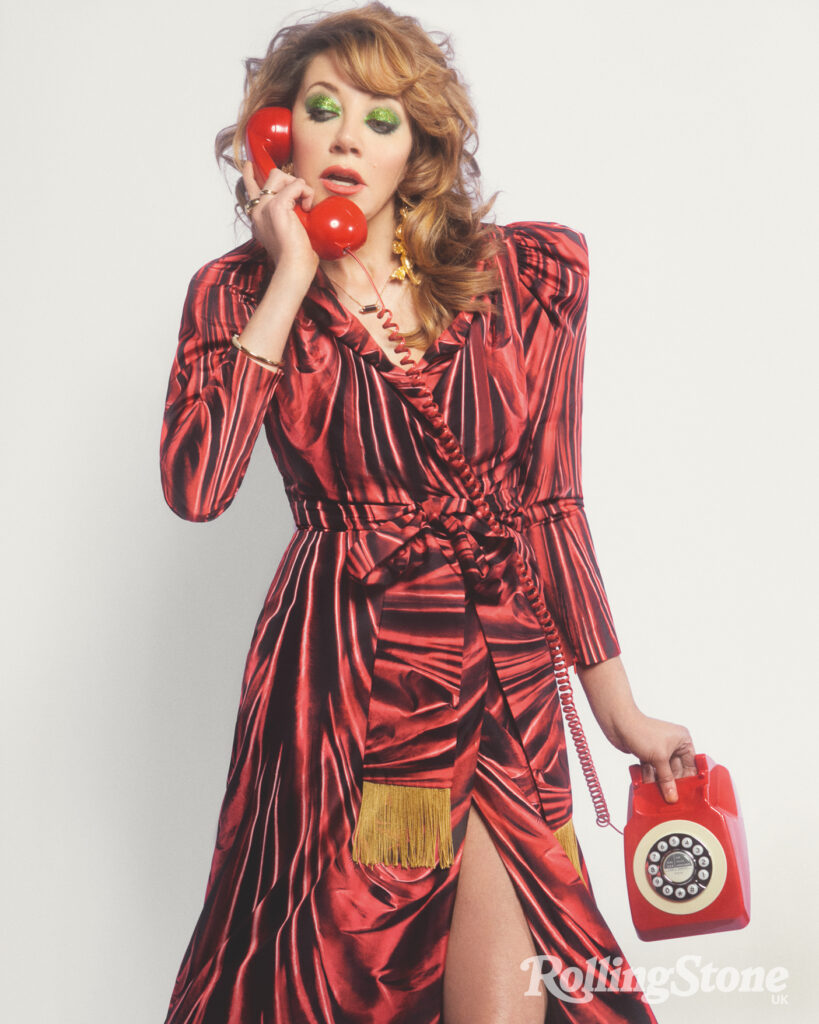
You’re fairly inactive on social media. Often comedians enjoy online banter.
Diane Morgan: I’m sort of moving away from social media stuff. Maybe I’m just getting old and I feel this isn’t my world any more. Since lockdown, it feels… it feels really horrible and aggressive [online]. And I want no part of it. I just want my own little world. I don’t really see the point of it — it’s boring.
Would you rather be berated for a tweet or for a show?
Diane Morgan: I suppose cancelled is cancelled, isn’t it. Cancel me. I’m not bothered. You care less as you get older, I think. I can’t be bothered any more with anything.
Do you think you’ll always stay in London? Or would you move to work in Hollywood?
Diane Morgan: Oh, God, no. I’d never move to the States. I can’t understand why anyone would do that — try to crack America. I’ve got to crack England first, crack London, before I bugger off over there. Apparently, they’re gonna do an American Motherland, which is really interesting. We showed them the pilot and they thought we were a bit aggressive. So, they said, “We’ll do our own version that’s not quite so nasty.” That’s what makes it brilliant, though. I think some comedians enjoy American stuff and enjoy the thought of being really big. I’ve always loved the British sense of humour. It doesn’t really get any better for me than doing something on British TV. It’s just the dream.
Cunk on Earth premieres on 20 September at 10pm on BBC Two at 10pm.
Taken from the October/November 2022 issue of Rolling Stone UK. Buy it online now.
Photography: Dean Ryan McDaid
Styling: Joseph Kocharian
Fashion Assistant: Sacha Dance
Make-up: Maria Comparetto using SUQQU
Hair: Daniel Dyer
